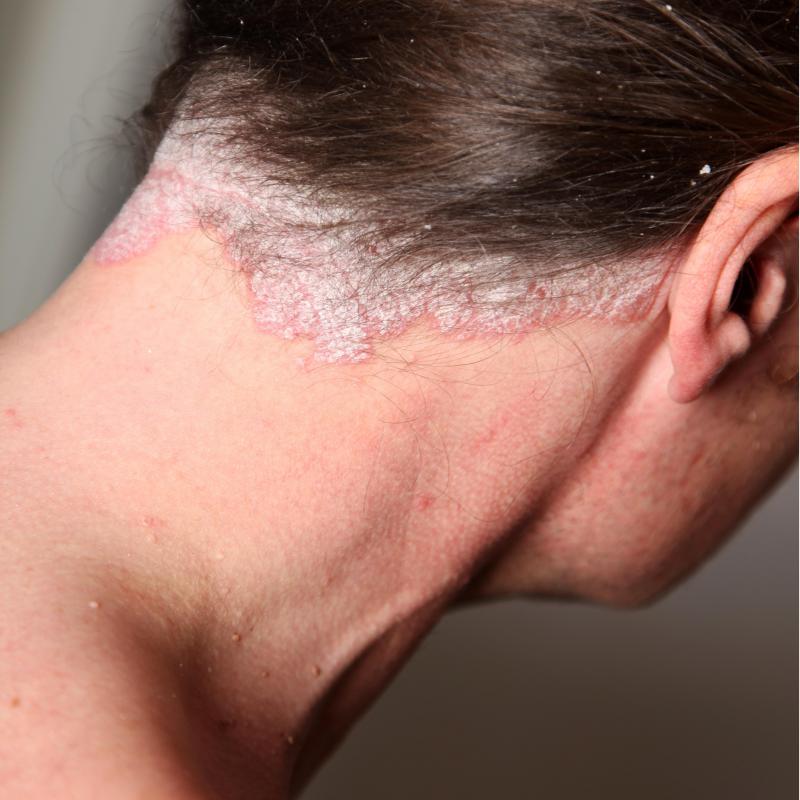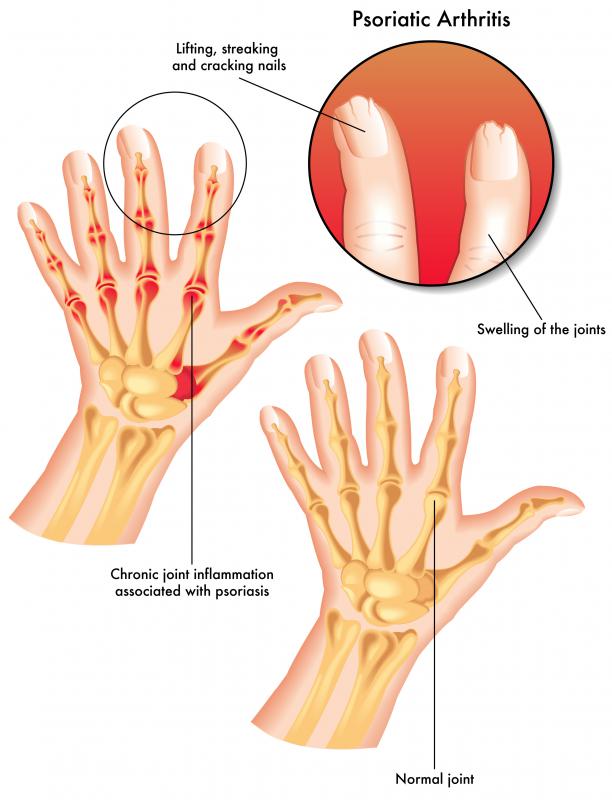At WiseGEEK, we're committed to delivering accurate, trustworthy information. Our expert-authored content is rigorously fact-checked and sourced from credible authorities. Discover how we uphold the highest standards in providing you with reliable knowledge.
What Are the Different Types of Steroids for Psoriasis?
Steroids for psoriasis can be an effective treatment for some of the symptoms associated with this disfiguring skin condition. Psoriasis is a skin condition characterized by overgrowth and shedding of skin, inflammation, and irritation associated with affected areas. Generally speaking, however, steroids for psoriasis are not typically a cure for this disease.
Psoriasis is caused by a physiological miscommunication. About 1.5 million Americans suffer from this chronic, long-lasting disease, although this value is subject to change depending on the source. The medical community classifies psoriasis — potentially present in small, isolated areas or prevalent throughout the body — into five categories. The possible categories are plaque, guttate, inverse, pustular, and erythrodermic psoriasis. Each of these describes a subclassification of the broader symptoms range of psoriasis.

The miscommunication that causes this troubling condition is a fault of the immune system. The immune system sends out improper signals, causing a stimulation of skin cell growth beyond the normal reproduction rates experienced by healthy individuals. This causes the associated symptoms as the body attempts to rid itself of these excess cells. Among the most common symptoms is the presence of inflammation. This inflammation can extend itself into the joints, a condition present among 10% to 40% of sufferers, known as psoriatic arthritis.

Steroids for psoriasis are effective because they have anti-inflammatory properties. Steroids are commonly misconceived as unnatural supplements used for muscle growth, but the reality is that they are a naturally occurring chemical classification describing substances ranging from topical creams to the cholesterol in our bodies. Certain steroids help control immune response, as is the case in the anti-inflammatory use of steroids for psoriasis.

Inflammation is basically an over-response by the immune system. This over-response can cause a cellular buildup around the affected area. If this buildup is extreme enough, life-altering inflammation can occur. The effects of inflammation range from aesthetic, such as visible redness, to painful, as in the case of tender swelling around a joint or sore. In either case, steroids can help control the symptoms.
Although treatments such as steroids for psoriasis are helpful for the management of psoriasis, its immunological nature makes it difficult if not impossible to cure. Although attributed to a genetic malfunction in immune system communication, the exact cause of psoriasis remains relatively misunderstood. Thankfully, there is a plethora of research constantly occurring to help better understand the causes and possible treatments of this unfortunate condition.
AS FEATURED ON:
AS FEATURED ON:













Discuss this Article
Post your comments